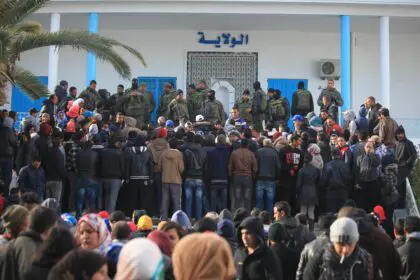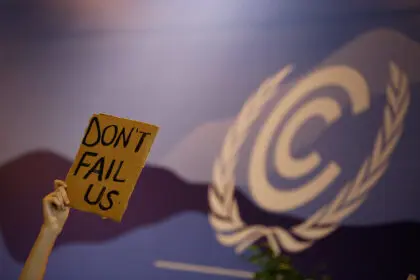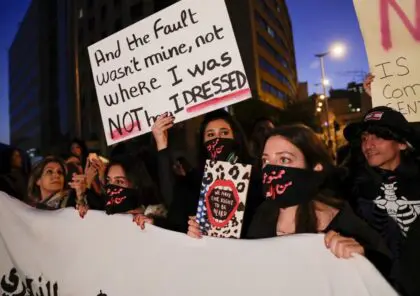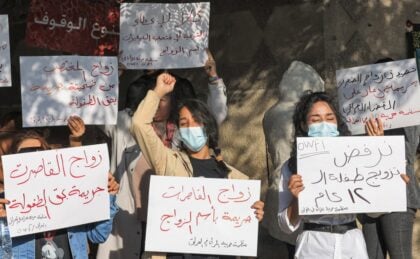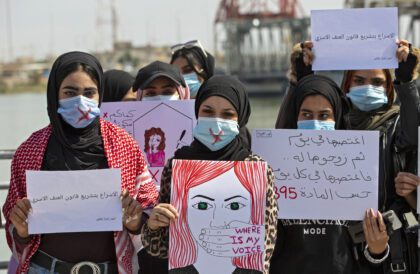
Introduction
For a peaceful and prosperous coexistence in society, Individuals and institutions must guarantee social justice. Otherwise, peace is at risk.
In a society with unequal rights, discrimination and unequal distribution of wealth and opportunities, revolts and even war might ensue. The outbreak of the Arab uprisings in 2011 also known as ” Arab Spring “, is an evident example.
Fanack’s Social Justice file takes into account issues such as fairness in healthcare, employment, child and women rights, and more, in the Middle East and North Africa.
Our mission is to offer a worthwhile contribution to the publication of balanced background up-to-date information on the topic from an Arab perspective.
The concept of social justice
Social justice is one of the highest value concepts that may have accompanied humans since the stages of childhood. It emerged as one of the basic concepts, along with the development taking place in the relationship between the human being and his surroundings. The concept of social justice, in its initial form, could not have surfaced as a virtue from which the human mind ceases to exist. Whether in light of the unlimited abundance of natural resources since the beginning of creation, or under the shadow of the first communal forms; where the mode of collective cooperative production, and the distribution of limited crops among members of the community in a fair and equal manner without conflict or conquest.
However, the emergence of social justice as an ethical concept based on values was nothing but a self-reflection of the requirements of the objective reality that man faced when moving from the primitive communal stage to other forms of successive economic and social systems, which subsequently prevailed, and was characterized by class disparity, taking different and multiple forms of relationships, control, and exploitation.
Therefore, looking at social justice as an abstract, philosophical concept, seems deficient without access to its essence, and how this concept has become comprehensive and includes a whole system of justice, economic, social, political, and cultural, in our present time.
The content of social justice has occupied many thinkers and philosophers, starting with Socrates, Gluckon, and Aristotle between the fifth and fourth centuries BC, passing through many thinkers of different intellectual and ideological backgrounds, such as Thomas Aquinas, Robert Owen, Saint Simon, Rifaat al-Tahtawi, Karl Marx, Syed Qutb, Robert Nozick, and others.
Foundations of social justice
Regardless of the investigation mechanism, most thinkers agree on basic foundations to achieve social justice, most notably:
- Equality, non-discrimination, and equal opportunities
- Social security
- The provision of basic goods and services
- Intergenerational justice
- Protecting freedoms
- Development of family laws and personal status
Hardly any country in the Middle East and North Africa is devoid of programs and systems to achieve some measure of social justice, such as wage and salary systems, social insurance, and pensions; or social protection such as in-kind or monetary support, solidarity education, health care, economic housing, and the provision of job opportunities. As for the protection of personal freedoms, it is one of the most important foundations of social justice, yet it is still surrounded by limitations and obstacles, either political or ideological.
In general, several problems must be faced to ensure the achievement of social justice in these countries, including:
- The spread of favouritism and corruption
- Marginalization, social exclusion, and denial of some rights, based on an ideological or ethnic background
- The widening of class gaps
- Restriction on freedoms of all kinds
Clearly, the lack of a sense of social justice with its various contents and foundations was behind the burning of the region at the beginning of the second decade of the millennium. People flocked to the streets, chanting slogans calling for the achievement of social justice. This resulted in the overthrow of traditional leaders, such as Zine El Abidine Ben Ali in Tunisia, Hosni Mubarak in Egypt, Muammar Gaddafi in Libya, and Ali Abdullah Saleh in Yemen. It was also the cause of entering most of the Arab Spring countries into the cycle of violence and counter-violence, some of which amounted to civil wars, which are still raging, leaving misery after misery until the beginning of the third decade of the millennium.







